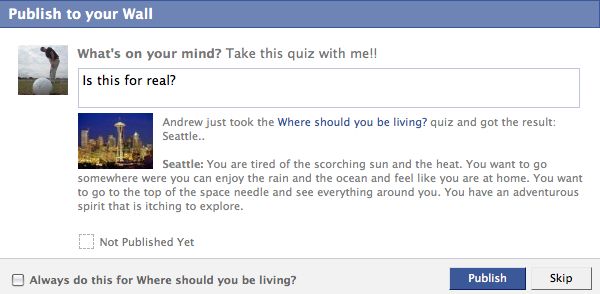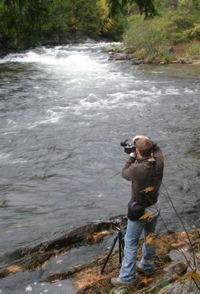
This is the Newsday newsroom with the copy desk in the foreground, where I started writing headlines for the Newsday Web site about a month into my time there. The special headline-writing effort has paid off for Newsday: It was one of the most-visited newspaper sites last month, besting others such as The Wall Street Journal. The photo features one of Newsday's best, Al Ortez.ews comes with great pleasure but without much surprise that
Newsday's Web site was one of the top five most visited for all newspapers.
The New York Times, which did seem surprised, wrote a short story about it today:
BUSINESS / MEDIA & ADVERTISING
By PRADNYA JOSHI
Published: January 21, 2008
"Many people in the industry expressed surprise when, for the second consecutive month, Newsday.com ranked in the top five of the most visited newspaper Web sites, with 6.45 million unique visitors in December, an increase of 183 percent from the previous year, according to data from Nielsen Online."
When I arrived at
Newsday, there was a great movement afoot to find new ways to get more clicks online. At first,
Newsday copy editors only wrote print newspaper headlines. But about a month into my stint there - I think it was July - we started writing Web headlines, all in an attempt to get more clicks.
Such an effort also is under way here in Brevard County, Fla., at
FLORIDA TODAY. But there are key differences that allow
Newsday, obviously the much larger publication, to enjoy greater success so far.
The
Times article mentions the use of technology to place stories high on search engine results. But one of the least sophisticated and least complicated methods to draw readers through engines such as Google has been rewriting headlines from the print version of
Newsday to the Web version.
I attended training sessions about this when I arrived at
Newsday and again when I started at
FLORIDA TODAY. Everyone uses search today. Tailoring headlines through the use of keywords makes headlines more attractive to search engines. It's called SEO, or search engine optimization. A search engine-optimized headline usually contains place names, people names - basically, a few of the five W's (who, what, when, where and sometimes why).
I remember sitting in the conference room at
Newsday, just across the hall from where all the newspaper's
Pulitzers Prizes are displayed. The presenters put a quote onto the PowerPoint screen that said, "Don't write for
Google. Write for readers, with
Google in mind."
That's not entirely true because I see more headlines these days that are 100 percent for Google, not the reader: ones such as "New England Patriots quarterback Tom Brady intercepted three times but wins game 21-12 against Philip Rivers and San Diego Charges." What used to be the lede sentence of a story is now the headline. But such a headline would draw many readers to its host Web site because almost every word for which the common searcher would look is included.
The
Times story also mentions
Facebook widgets and bookmarking for services such as
Digg,
MySpace and
Google.
FLORIDA TODAY hasn't put these tools to use yet. As is the case at most newspaper Web sites, editors here have click fever, the undying need to get more clicks. Tools (or more accurately, efforts) such as rewriting headlines instead of shoveling them from the print newspaper to the Web, however, haven't been employed yet. Social bookmarking is a bit more complicated, though it is simple enough for me to use here on The Offlede.
With each story I pored over as a
Newsday copy editor, I wrote a headline first for the newspaper, then another that was keyed toward the Web on the top of each story. This is one of the simplest and least expensive ways to become a more successful Web site through increased clickage. Here are my top five routes to click heaven:
- Write headlines with Google-flavored keywords: Someone searching for Britney Spears could as easily be directed toward a small newspaper as toward TMZ.com, as long as the headline is full of juicy words such as "Britney Spears." Yummy.
- Use social bookmarking such as Digg, Facebook and Del.icio.us: These sites are extension sites where content can be placed for free but will end up driving more users your way. The more tools on your plate, the more random bites you'll get.
- Put hyperlinks into stories: Driving traffic to external sites may get you noticed by users of those external sites. Plus, it's convenient for your readers. They add serious meat to content.
- Use YouTube and Viddler as video servers: This isn't always an option for a newspaper that wants some videos to remain exclusive and limited to its own Web site. But YouTube videos serve as an easy way to get noticed. Serious YouTubers spend hours browsing the site and will find your video and eventually check out your Web site. Cool vids are the priceless morsels these people crave.
- Use public blogging platforms such as Blogger, WordPress and even Twitter microblogs: News travels so fast on the blogosphere. Newspaper bloggers should open up their sites to the public, allowing the utmost interaction with readers through comments and complementary postings. The real blogosphere - populated by commoners, not traditional journalists using a new medium - is a largely untouched readership market with lots of potential. Interaction with other bloggers will get a newspaper blogger into the real blog environment. If you ignore them, you may alienate them. Then, they'll eat you up.
The future of newspapers is online. The gauge of the success in this movement comes, not through circulation figures, but through click tallies.
And from more clicks on stories comes more clicks on advertisements and more money.
Newsday is a model that many could stand to learn from.




